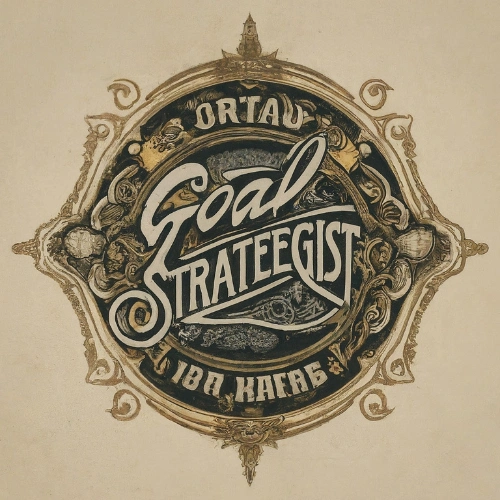Ella Baker, a powerhouse in the civil rights movement, had a vision for African American empowerment that’s as relevant today as it was decades ago. You might wonder how her strategies and beliefs could guide you toward achieving your goals.
Baker’s grassroots approach emphasized collective action and personal agency. She believed in the strength of community organizing and the power of every individual to enact change. Let’s delve into Baker’s philosophy and how it could be the blueprint for your success.
Understanding Baker’s legacy offers a unique perspective on goal attainment. It’s not just about the endgame; it’s about the journey there, the people you uplift, and the communities you build. Ready to explore how Baker’s insights can inspire your path to achievement?
Baker’s Vision for African American Empowerment
Ella Baker’s pioneering spirit reshaped the fight for civil rights and justice. Her template for empowerment was not top-down, but bottom-up, fostering a participatory democracy. Leadership was from the ground up, designed to kindle a sense of ownership among those involved. You weren’t just a bystander; you were an integral piece of the puzzle. Baker believed that every person held power and potential to effect change within their communities.
With Baker’s approach, the emphasis was on collective action. She had a vision where African Americans achieved their goals through a united and organized effort. The understanding was that shared struggles necessitate collective solutions. Baker’s philosophy didn’t just rest on one hero saving the day but was more about heroes in every home—every individual contributing to a larger goal. The focus on community-oriented activism meant that everyone’s contribution mattered, regardless of how small it seemed.
When you’re weighing how to achieve your own goals, Baker’s methodology suggests that teamwork and community engagement are vital. She encouraged individuals to take on active roles by expressing their thoughts, participating in discussions, and being part of decision-making processes. The underlying idea was that empowerment comes from within the community and self-empowerment was the first step to collectively reaching new heights.
Baker’s blueprint wasn’t just about attaining a set goal; it was about the dynamics of getting there. The process involved personal development, education, and political activism. Understanding your rights, harnessing your unique skills, and channeling them towards your collective goals outlined the roadmap for the future. By championing a decentralized leadership structure, Baker laid out that progress is sustained when everyone is involved and equipped to take the helm.
The Importance of Collective Action
Ella Baker’s steadfast belief in collective action as the cornerstone for African American progress is a model of empowerment that still resonates today. Teamwork, she posited, is the fuel that drives the engine of change. This approach galvanizes communities, fostering a unified front to tackle systemic issues. Remember, when your community works as one, the collective voice amplifies, ensuring that your demands for justice and equality are heard.
Within your community, you’ll find strength in numbers. Active participation is key. Every little action, from attending meetings, spreading awareness, or merely standing in solidarity, contributes to a larger, more meaningful impact. This is how Baker envisioned the fight for civil rights — not as a series of solo endeavors, but as a cohesive, coordinated effort.
- Educate yourself and those around you.
- Motivate peers to join in the cause.
- Participate in community initiatives.
Baker saw the potential in an inclusive strategy, where leadership isn’t limited to the few but shared among the many. She encouraged African Americans to engage in grassroots movements, ensuring that the movement’s direction stays true to the needs and wishes of its constituents. Ground-level organizing empowers individual members, giving everyone a say and fostering a sense of ownership over the collective journey.
Peer-to-peer networking is another aspect Baker championed. It’s more than just connecting; it’s about building relationships that inspire action and drive change. These links create a web of support and shared knowledge that’s vital for movements to persevere in the face of adversity.
At the heart of Baker’s philosophy is the idea that sustainable progress comes through repeated, concerted actions. Change doesn’t happen overnight. It’s the result of persistent efforts by people who share the same vision and are committed to seeing it through, no matter how long it takes. Keep in mind that every stride toward your goals is a building block for a more equitable future.
Personal Agency: Harnessing Individual Power
In the collective quest for justice and equality, Ella Baker passionately championed the notion of personal agency. You’ll find that her philosophy underscored the cotemporary importance of every individual realizing their inherent power and ability to affect change. Baker’s method wasn’t just about collective action; it was equally about fostering self-reliance and confidence in one’s own convictions.
Ella Baker held a deep-seated belief that African Americans can achieve their goals by focusing on developing personal strengths and capabilities. Here’s how she believed you could tap into your personal agency:
- Recognize your unique value and contributions to the movement
- Develop a critical mindset to question and challenge the status quo
- Build self-sufficiency, reducing the dependency on centralized leadership
One of the key takeaway messages from Baker’s teachings is that real change begins with self-awareness. You have the power to influence your surroundings and inspire others through your actions and decisions. By cultivating leadership qualities within yourself, you become an integral part of the solution, seamlessly creating ripples that unite with others’ efforts.
Engagement in political affairs at all levels – from local to national – enhances your understanding of the mechanics of change. Baker encouraged you to educate yourself on issues and to use your voice and your vote to propel African Americans toward their goals.
It’s important to remember that embracing personal agency does not imply a solitary journey. It means acknowledging that while your aspirations may align with wider societal movements, your personal growth and active engagement are crucial. Your story, your struggle, and your perspective add invaluable dimensions to the collective narrative.
By harnessing individual power, you embody the essence of Baker’s vision. Every step you take towards self-improvement and every action you make for social progress not only advances your position but also fortifies the shared path towards achieving those long-sought-after goals.
The Strength of Community Organizing
Ella Baker, a visionary in the Civil Rights Movement, understood that African Americans could better achieve their goals through collective effort rather than isolated endeavors. You’ll find that her approach to empowerment was deeply rooted in community organizing. This process didn’t just hinge on sporadic mass meetings or high-profile speeches; it required an on-the-ground, day-to-day commitment from the people within the community.
Community organizing involves developing connections and fostering trust. These are the building blocks for any group seeking to make meaningful progress:
- Establish Local Groups to Address Specific Issues
- Foster Interpersonal Relationships Through Dialogue
- Educate Community Members About Their Rights and Responsibilities
- Plan and Execute Strategic Actions to Address Community Needs
Strategic actions are vital in this framework. Community organizing isn’t just about coming together; it’s about moving together with intention. By prioritizing localized solutions, African American communities can create ripple effects that challenge systemic issues on a larger scale.
In Baker’s view, community organizing is as much about emotional investment as it is about strategic planning. When you’re emotionally invested in your community, your drive to see change through often results in more persistent and effective activism. Moreover, community-led initiatives ensure that those who are most affected by societal issues have a hand in designing the solutions. This empowerment, that comes from within, not only results in positive change but also bolsters the community’s resilience over time.
It’s critical to remember that real, lasting change often comes from grassroots movements rather than from the top-down approaches of centralized leadership. Baker championed the idea of giving the marginalized a voice in their future, emphasizing the need to create a platform where every member can both listen and be heard. Success in this arena relies on the collective efforts of individuals who are committed to uplifting each other, recognizing that there are multiple pathways to achieving greater equity and justice.
Building Uplifting Communities
Ella Baker’s strategy for African American empowerment deeply involved the concept of uplifting communities. You’ve seen how she believed in the collective power of individuals, but Baker also recognized the need for nurturing supportive environments. These communities act as the bedrock for social movements and individual development. By actively participating in these environments, you’re not just supporting a cause but also forging a network of mutual aid.
The first step in this process is to create safe spaces where people can engage in open dialogue. Communication is key – it’s where you learn about the needs and aspirations of your neighbors. Baker underscored the importance of these spaces being inclusive and welcoming of all voices, especially those frequently sidelined.
To strengthen community bonds, Baker advocated for joint effort in addressing common interests. This could manifest in various ways:
- Community-driven educational programs
- Neighborhood watch initiatives
- Local economic development projects
These endeavors allow you to take ownership of your community’s well-being and create a sense of shared responsibility. It’s not just about identifying problems, but proactively working on solutions that benefit everyone involved.
Another crucial element in building uplifting communities is recognizing the value of mentorship and guidance. Younger generations require role models and guidance to understand their potential. You could volunteer at local schools or mentorship programs, offering youngsters the chance to connect with successful figures from their own neighborhoods.
Remember, the goal is to catalyze change from within. While emotional investment takes root in the individual’s heart, strategic community actions solidify the foundation for a brighter future. When you’re part of an uplifting community, you’re participating in a larger tapestry of change, one that’s woven with the threads of cooperation, understanding, and persistent effort. Baker’s vision ensures that the torch of progress is passed on, illuminating the path for those who’ll walk it after you.
Conclusion: Applying Baker’s Philosophy to Achieve Your Goals
Ella Baker’s enduring philosophy serves as a powerful blueprint for you to enact change within your community. By embracing collective action and fostering deep connections, you’re equipped to tackle the challenges that hinder progress. It’s about more than just strategy; it’s about creating an environment where emotional investment and mutual support thrive. As you step into Baker’s legacy, remember the strength found in uplifting one another and providing mentorship to the next wave of leaders. Your commitment to these principles isn’t just a pathway to achieving goals—it’s a transformative force for the community and a beacon for future generations. Embrace this shared responsibility and watch as you and your peers become the catalysts for enduring change.


Leave a Reply